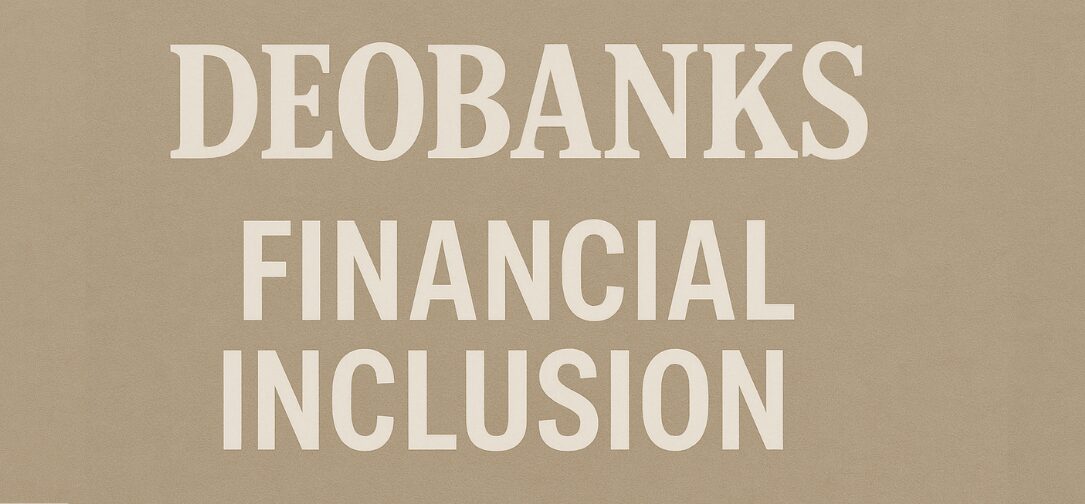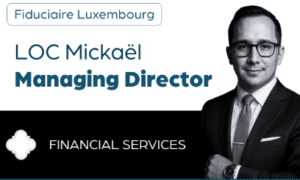Expect financial inclusion to grow in importance in the coming years, igniting a change in how people perceive banking and financial services. Until now, financial inclusion has been measured simply by how easy it is to open a bank account. That’s no longer enough. From overseas workers to digital nomads, the rigid, slow, and often exclusionary nature of traditional banking has left billions of people on the outside looking in.
Times are changing. “Financial inclusion” is being slowly redefined to consider how the system could serve everyone, everywhere, not only those who fit neatly into pre-existing boxes. As a result, institutions that protect money are evolving to become more accommodating and flexible. They will face a sturdy challenge, however, from a new form of purpose-built financial infrastructure called deobanks, or decentralized on-chain banks. Leading this charge is WeFi, the original deobank.
This new way forward can serve everyone. It helps freelancers who receive payments from global clients, who face astronomical fees and lengthy settlement times. It benefits migrant labourers who send funds to their family and are vulnerable to exorbitant third-party charges and opacity. It’s ideal for individuals with no formal address or government-issued ID who deserve access to financial services too.
The change starts with a mobile-first, globally connected, and accessible approach to banking, with decentralized on-chain banks putting people in firm control of their financial destinies.
The Gaps in Traditional Financial Systems
Considerable limitations and frictions in the traditional, centralized banking system have given birth to solution-oriented deobanks, such as:
- Strict KYC Requirements: Know Your Customer (KYC) regulations are pivotal to fighting financial crime, but their rigid requirements exclude anyone without formal ID or stable address. That’s an estimated 1.4 billion people globally.
- Physical Branches: Brick-and-mortar locations and in-person verification create an accessibility issue for people in remote areas, those constantly on the move, people with little free time, or individuals who are travelling. This legacy infrastructure hasn’t caught up to the mobile-first, hyper-connected 21st-century citizen.
- Outdated Credit Scoring: Traditional credit scores are part of the centralized borrowing system, yet they fail to account for a person’s digital footprint, alternative income streams, or modern indicators of financial responsibility. People who have never borrowed money will have no credit score, making it harder to borrow money and improve their credit score, creating a negative feedback loop that leads to exclusion.
- High Fees: The charges incurred when sending funds, particularly across borders, eat away at people’s hard-earned money. For overseas workers making remittances to their families, every penny counts.
All issues are exacerbated by a lack of transparency. There’s typically little information about how fees are calculated, where funds are at any given moment, and how decisions get made. With traditional banking systems excluding and alienating large swathes of the global population, especially in emerging markets and mobile-first economies, there is a widespread feeling of distrust.
How Deobanks Reimagine Financial Access
Decentralized on-chain banks have also been purposefully designed to outperform neobanks, the digital-first “challenger” banks that have grown popular over the last decade, such as Revolut, Wise, and Monzo. Unlike neobanks, which are still centralized entities at heart, deobanks operate on blockchain rails, meaning everything from storing value to facilitating payments or credit is handled by transparent smart contracts.
The transition to decentralized infrastructure may require small habit changes, yet it will be worth the move. Primarily, it will give users full control over their funds, with no central decision-makers involved or in-person interactions required. What’s more, deobanks are highly programmable and customizable, ideal for those who desire flexibility and autonomy. The benefits continue.
- Access Without Permission: A deobank gives anyone with a smartphone and internet connection the opportunity to access financial services. They do not judge on citizenship, legacy credit history, or physical address. The new system operates on permissionless principles, after all, it’s your money to do with as you will.
- User-Controlled Assets: Deobanks typically offer a range of account types, including non-custodial options, which give users full control over management and security. With no central authority, there’s no entity that can freeze or seize assets, delivering genuine financial sovereignty.
- Built-in Transparency: All transactions are recorded on a public blockchain that cannot be edited or manipulated. Every transaction becomes fully verifiable, auditable, and transparent, a 180-degree turn from the opaque processes and hidden fees of traditional finance.
These benefits and features welcome the unbanked and underbanked into a new direction for finance, one intentionally designed to meet their diverse needs.
Why WeFi Is Built for the Underserved
In WeFi’s system, financial tools that were once exclusively for the wealthy or the institutionally connected are now made accessible to all. Nobody gets left behind.
To achieve a complete solution, WeFi’s mobile-first platform integrates everything from custodial and non-custodial wallets to high-yield savings vaults and real-time asset control. By leveraging low-cost, high-speed blockchain networks, it is able to eliminate most of the friction points that made traditional finance so frustrating for underserved groups.
Ultimately, decentralized on-chain banks deliver transparency and user control not as features, but as non-negotiable design principles.
Real-World Use Cases for Inclusive Finance
While many platforms have promised to “bank the unbanked”, WeFi’s mission is broader, aiming to empower people to participate in the global economy on their own terms.
- Migrant Workers: Overseas employees can use WeFi to send money to their family’s crypto wallet, instantly and with minimal fees. Say farewell to costly third parties and painful delays.
- Freelancers: The digital workforce now widely accepts stablecoins as a payment method for overcoming borders and restrictions. WeFi goes further, helping freelancers immediately put these payments into yield-generating accounts that earn them a passive income.
- Users in Underserved Regions: Whether there’s a lack of formal banking infrastructure or an unstable local economy, people can access WeFi to store value, access stablecoins, and transact globally, regardless of market conditions.
Composability, DeFi, and the Power of Decentralized On-chain Banks
WeFi and other decentralized on-chain banks embrace composability. By building on open financial infrastructure, external developers and third-party services can plug new tools and features right into its platform. The outcome is a flourishing ecosystem where the responsibility of innovation is shared.
Smart contracts’ high level of programmability also allows for highly personalized DeFi tools. Imagine that whenever you receive a payment, you could automatically allocate 10% to a high-yield savings account. Useful features like this will become commonplace for deobanks like WeFi.
The Future of Financial Inclusion Is Being Built On-chain
Access, flexibility, and control. These are the demands of those who want to experience banking in an entirely new way. Account ownership was once the goal. Now people want equality, equity, and exploration.
Decentralized on-chain banks like WeFi are doing more building than talking, driving the revolution for the benefit of all, not just the privileged.
Explore more of WeFi’s ambitious financial inclusion plans to better understand how they aim to serve a global audience.

































